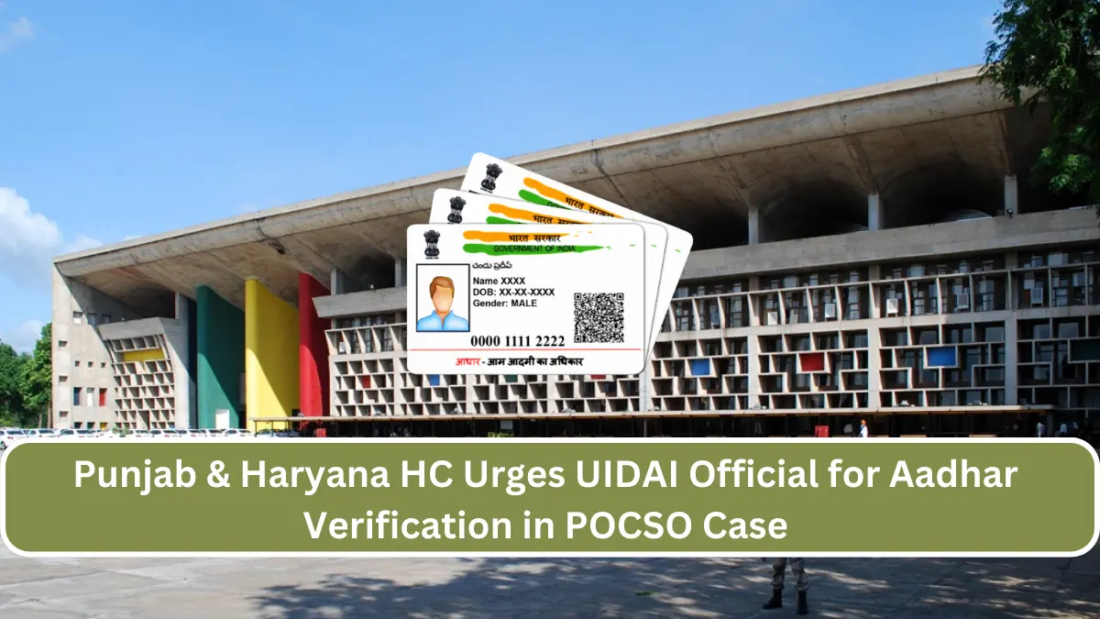Introduction: In X vs State of Haryana and others (CRM M-17864 of 2021) Petitioner sought directions under Section 482 Cr.P.C. to summon a UIDAI (Unique Identification Authority of India (UIDAI)) official for the trial. The Petitioner, accused in a POCSO case, challenging the prosecutrix’s claimed date of birth, aiming to prove she was not a minor during the alleged offense.
Facts: The Petitioner disputed that the prosecutrix’s age based on her birth certificate. The certificate, allegedly falsified, indicates a birth date of 31.05.2001. However, the Petitioner later discovered an Aadhar Card showing a different birth date, 01.01.1999.
Contention of the Petitioner: The Petitioner argued that the UIDAI official’s testimony is crucial to prove the prosecutrix’s actual age. The Aadhar Card, believed to be accurate, contradicts the birth certificate and supports the defence’s claim. Section 33(1) of the Aadhar Act 2016, allows disclosure of information, including identity and authentication records, if ordered by a court not inferior to that of High Court Judge.
Contention of the Respondents: The Respondents opposed the Petitioner’s plea, citing Aadhar Act provisions. They argue that Aadhar cards are for identity verification, not proof of birth. The burden of proving the birth date rests on the cardholder, and the Petitioner’s request lacked legal basis.
Court’s Observation: The court emphasized the importance of a fair trial, citing precedents. It acknowledged the discrepancy between the birth certificate and Aadhar Card. The court noted the Petitioner’s right to present a defence and the need for the UIDAI official’s testimony to resolve the issue. The Court observed that, “Even though, apparently, the Aadhar card can be exhibited as a proof of identity of Aadhar card holder and may not be exhibited as proof of birth, however, the date of birth is recorded on the basis of self-declaration given by the card holder/respondent. Thus, by producing the Aadhar card record of the prosecutrix, the accused could disprove the case of the prosecution.”
Court’s Decision: The court allowed the petition, permitting the Petitioner to call a UIDAI official to present evidence related to the Aadhar Card. However, it ordered that the core biometric information should not be disclosed. The trial court was instructed to facilitate the summoning of the concerned witness.
Conclusion: The petition was granted, and the Petitioner can present evidence through a UIDAI official, excluding core biometric information. The trial court was directed to handle the proceedings accordingly.
 Cart is empty
Cart is empty 

